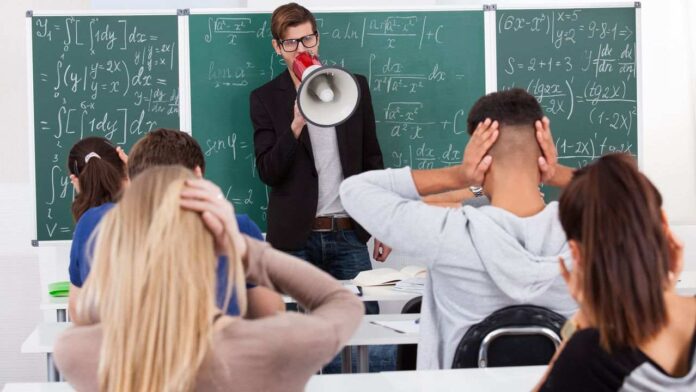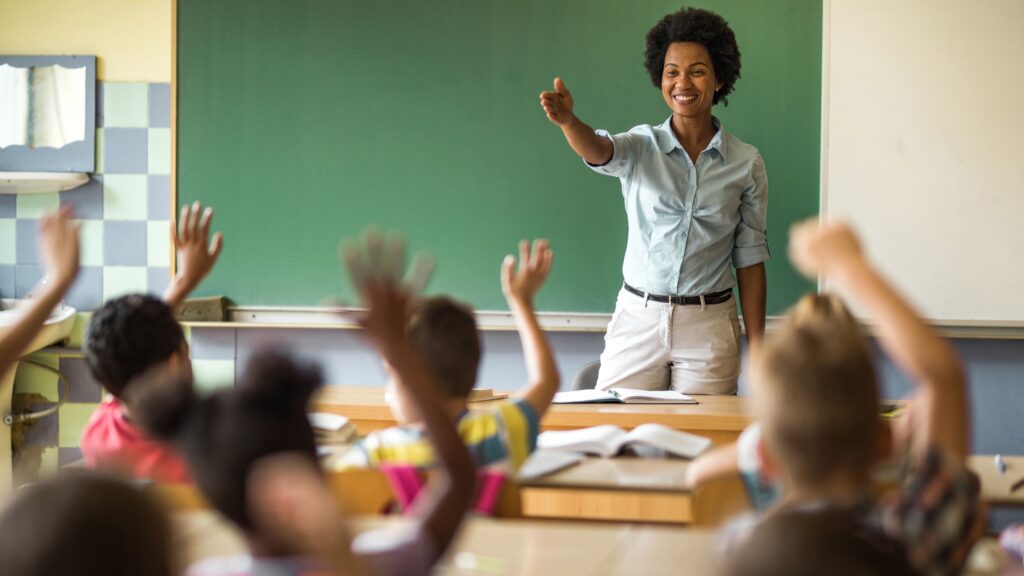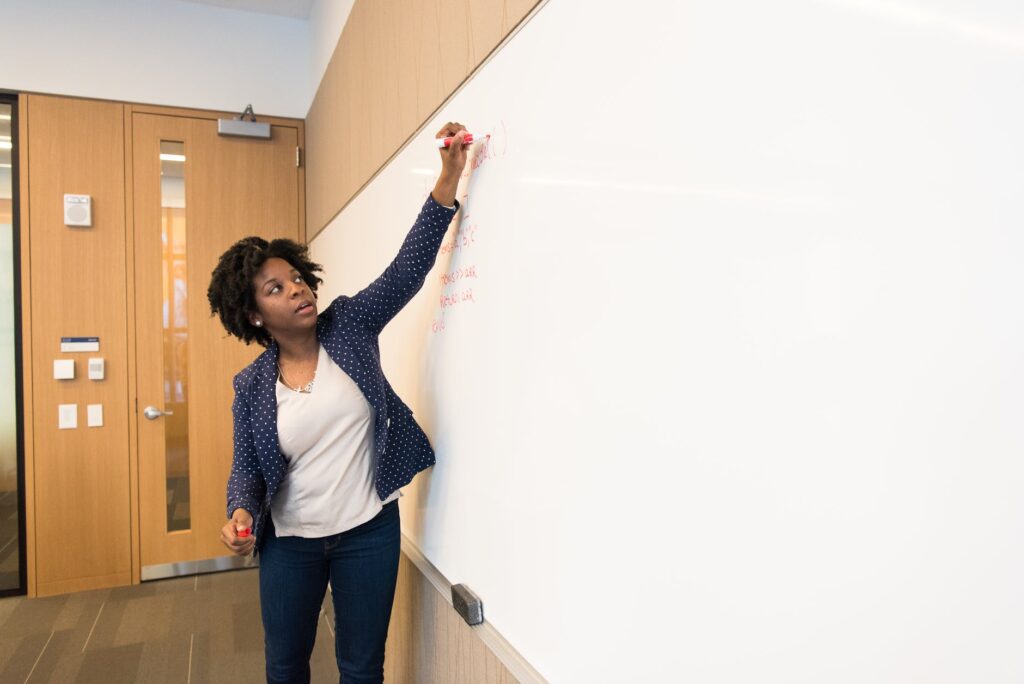
Teachers’ authority in the classroom has been one of the most persistent questions about high school and college learning for years. Education trends smoothly shifted from strict regulations to the student-centered approach, which has brought educators new questions to be addressed. One of them is how to establish a teacher’s authority, remain student-centered, and give your students a voice. At the same time, the topic raises questions about how to engage students in classroom life and activities.
Why a teacher’s authority matters for the success of the learners?

Relationships between teachers and his/her classroom influence the academic trajectory and social development direction that students will be free to choose after graduation. From the present-time perspective, establishing a positive connection with a teacher helps students to feel comfortable in the classroom environment.
While teachers should establish friendly relationships in the classroom, it doesn’t mean becoming friends with your students. Finding a balance between authority and friendliness often becomes trouble, so don’t stress if you face the same situation.
There are enough free resources and examples on the topic to be sure you’ll find the right way. Start with reading the essays on authority on StudyMoose. After you gain potentially new knowledge from the essays, we recommend you take your time to discover interesting ideas on this topic.
We found some interesting ideas in one of the essays; they conceptualize how authority, freedom, and discipline are correlated. One way to implement the right extent of each concept into school life is to maintain their influence, teachers should maintain the dignity of being consistent and fair to all class members. If it sounds interesting for you, click on the link above and continue reading.
But now, let’s get back to the topic of our paper.
Creating a balance between friendliness and authority

Authority is just as important as maintaining a friendly relationship both for a teacher and his/her students. In its turn, authority in teaching isn’t something given automatically; it’s something that must be earned. To help you to do this, we have prepared a brief list of the best tips and examples provided below.
Student teaching tips high school
1. Clearly define the rules and boundaries

When students know what the academic and behavioral expectations in their classroom are, there is promised to be no confusion during the studies. You can have your rules written on the blackboard – this way, pupils will be aware of how they or their peers will be treated in case they don’t follow the rules of their classroom. For instance, if someone gets late for 15 minutes, he/she gets a 20-minute after-school learning session. Apart from punctuality, you can enforce the rules centered around homework and attendance.
2. Share appropriate personal stories with your class

Telling appropriate stories from your life very often can be used to illustrate a point related to the topic of your lesson. Sometimes, personal stories ease tension, help students to gain hope, and can even improve their trust in you. However, there’s no need to tell your pupils about a fight with your spouse about how much you partied being a student. There are clear boundaries between what stories are appropriate and which are definitely not, but you understand this without our further explanations.
3. Stay firm but fair

Don’t fall into the trap of being too hard on yourself when trying to defend your authority. After all, it is vital that you also encounter a person who is a fair and intelligent teacher. Tactics such as raising your voice and punishing someone severely may work from time to time, but it is more likely to cause your students a sense of fear rather than respect for your authority. This will not create a productive environment and will not bring the best results from your students. So always be sure that you find the middle ground, trying to be authoritative.
4. Remember to listen

Listening is one of the most consistent ways to build a strong relationship with your students. Many students don’t feel heard, or they just want their opinion to be respected in school. Whenever you have a difficult student or the one with poor performance, take a talk-time and find out what’s the problem. The student and the teacher can often overcome any school education-related problem together, whether it’s about problems with essays or communication troubles.
5. Stay positive

Laughter and a positive approach relieves tension, dispels stressful situations, and creates a friendly atmosphere inside the classroom. Humour, jokes, and shared entertainment help to create a sense of community and make a teacher more human-like in the eyes of his/her pupils.
6. Treat every student with respect

Respecting students is a must to boost their effectiveness. Many teachers expect their students to respect them, and they should, but they also should be respectful to their pupils at all times. Being respectful is always a two-way interaction, though it isn’t always easy. That’s why we recommend taking a positive view of the interaction with students. Educators should be professional enough, smart enough, and adult enough not to despise or embarrass their students. At this point, it’s very important to make sure that you talk to your students, not down to them.
Ways to maintain a high level of students’ interest in academics

Learning success that is achieved through the well-being of students is not a complete academic achievement. PISA survey of school samples from different countries states that most teachers and principals recognize that students’ social and emotional development is as important as their mastery of school subjects. Good relations between teachers and students play a significant role in the development of students’ attitudes towards learning.
Here are the main theses of the research:
- Four out of five students in countries which conduct the PISA study agree or fully agree that they feel happy in an educational institution or feel they belong to the community of their institution;
- The teacher-student relationship has a major impact on math and essay writing performance and students’ sense of happiness in school and belonging to the school community;
- On average, 71% of students attend schools whose leaders report that their students’ social and emotional development is as important to their teachers as their academic success.
As you can see, it is good relationships in the classroom that makes a base for the long-term success of any of the participants.
Conclusion
When students have a good relationship with their teachers, it positively affects their academic performance and their sense of being a part of their school. But establishing a teacher’s authority is as important as maintaining a friendly atmosphere in the classroom. Educators don’t need to struggle with queries like “how to be a strict teacher” to make the class hear them, neither with “how to be a fun teacher” for pupils to like them (as they already do this). Those who have mastered their authoritative skills command the attention of schoolchildren simply with their presence.








